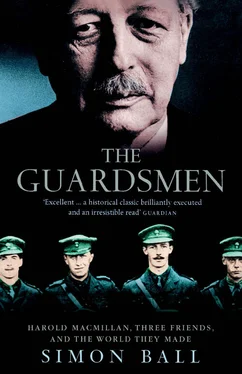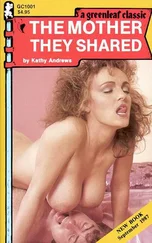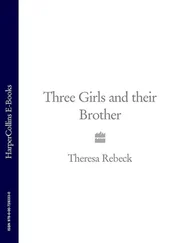At the start of this project it appeared that the most difficult of its subjects in archival terms would be Bobbety Cranborne – or Lord Salisbury, as he became in 1947. Papers related to his leadership and shadow leadership of the House of Lords between 1941 and 1957 are held by the House of Lords Record Office. The papers of his uncle and early mentor, Lord Cecil of Chelwood, were deposited in the British Library. Lord Salisbury was a prominent member of Anthony Eden’s circle. His correspondence thus appears frequently in the papers of Anthony Eden himself, deposited by Lady Avon in the archives of Birmingham University Library. He carried on a regular correspondence with Jim Thomas, and Thomas, by then Lord Cilcennin, left his papers in Carmarthenshire Record Office. There was also a correspondence with Paul Emrys-Evans, who, having become an MP, had become a prominent Edenite backbencher. Emrys-Evans was also secretary of James, 4th Marquess of Salisbury’s Watching Committee and Bobbety Cranborne’s under-secretary at the Dominions Office. Their long association continued after the war. When Emrys-Evans lost his seat in 1945, he went into business, rising to be chairman of Cecil Rhodes’s chartered British South Africa Company. The chartered company was much involved in the politics of southern Africa in the late 1950s and Lord Salisbury joined its board on his resignation from the Cabinet in 1957.
It was my great good fortune to use an even better source. Lord Salisbury had left an extensive collection of political and other papers in his archive at Hatfield, but these were not open to the public. They had been reorganized by his former secretary in the early 1980s, but were not formally catalogued. Through the good offices of the Tudor historian Professor A. G. R. Smith and Hatfield House’s librarian, Robin Harcourt Williams, the late Lord Salisbury was made aware of my project. Not only did he grant me access to his father’s hitherto closed papers, but he also talked to me about his father and his circle. Lord Salisbury’s generosity was of immeasurable assistance.
In addition to those mentioned above, I have received assistance from many other individuals and institutions. For their consent to quote from papers to which they hold copyright, I wish to thank the Amalgamated Metal Corporation plc, Lady Avon, the Carmarthenshire Archives Service, Lord Chandos, the Trustees of the Chatsworth Settlement, the Grenadier Guards, Mrs Rachel Fraser, Lincolnshire Archives, the Trustees of the Harold Macmillan Book Trust, Lord Salisbury, the Master and Fellows of Trinity College, Cambridge, Sir Charles Willink. If I have infringed upon the copyright of any persons or institutions I hope they will forgive the oversight and inform me, so that the error may be corrected in any future edition of this book.
The University of Glasgow gave me leave from my teaching duties in order to research and write this book. That leave was extended by a grant from the Arts and Humanities Research Board. The British Academy awarded me a grant to defray the costs of travelling to archives. All Souls College provided me with rooms in Oxford. The John Robertson Bequest gave me a grant towards the cost of photographs from the Imperial War Museum. I am most grateful to the trustees and administrators of these bodies for showing such confidence in my work when this book was little more than an idea. For similar confidence on a more personal level I would like to thank Hew Strachan, formerly Professor of Modern History at the University of Glasgow, and David Bates, formerly Edwards Professor of Medieval History at the University of Glasgow. Without their encouragement writing this book would have been a more difficult and less enjoyable task. The book would not have been written at all if Tony Morris had not suggested that it had commercial potential, if Robyn Airlie had not introduced me to the late Giles Gordon and if Giles had not been enthused enough to place me in the capable hands of Arabella Pike. I am extremely thankful to them all for their help, advice and support.
During the course of the research for this book I visited many archives and libraries around Britain. I was met with unfailing courtesy and helpfulness. Without these institutions historical research would be impossible; with them it is most pleasant. I would like to thank the staff of the Modern Papers Reading Room, Bodleian Library, Oxford; Rhodes House Library, Oxford; the British Library; the Public Record Office, Kew; the House of Lords Record Office; the Archives Centre, Churchill College, Cambridge; Carmarthen Record Office; Lincoln Record Office; Lincoln Cathedral; Royal Headquarters, Grenadier Guards, Wellington Barracks; the Imperial War Museum; Rio Tinto Zinc plc Archives, London; GEC-Marconi plc Archives, Chelmsford; AMC; Hatfield House; Chatsworth Archives; the National Library of Scotland, Edinburgh and the London Library.
I have benefited enormously from the help of a number of scholars of British history. I would like to thank, in particular, Dr Stuart Ball of the University of Leicester for discussing his work on Cuthbert Headlam and claryifying details of the Headlam-Lyttelton relationship, Dr Philip Murphy of the University of Reading for discussing his work on Lyttelton, Alan Lennox-Boyd and Sir Roy Welensky, Dr Nicholas Crowson of the University of Birmingham for sharing his ideas about the anti-appeasers; and Dr Ronald Hyam of Magdalene College, Cambridge for acting as my mentor in imperial history. Each took time away from their own scholarly research to guide me in fields in which they are expert and I was not. Professor David Reynolds of Christ’s College, Cambridge, Dr Richard Aldous of University College, Dublin and Robin Harcourt Williams, Librarian to the Marquess of Salisbury, undertook the lengthy task of reading my manuscript in full and providing a detailed commentary on what I had written. The improvements in style and content they introduced were many and various. I thank them for taking such care with my work. Since Richard Aldous and I have talked endlessly about our books since we were at Cambridge together, some of the work he was correcting was probably originally his in any case.
One of the chief joys of writing a book is sharing it with one’s family. I count myself fortunate that my family are bibliophiles. My parents, Eric and Sheila, have encouraged me to write from an early age. My father read the manuscript of this book as he has those of my previous books. I have incorporated many of his suggestions and dropped those passages that did not meet paternal approval. My wife, Helen, has read every draft of this book as it left my pen. If I had listened to her advice more often I would have finished quicker and written better. I dedicate this book to her, with love.
Harold Macmillan, Oliver Lyttelton, Bobbety Cranborne and Harry Crookshank all arrived at Eton in 1906, all served in the Great War in the same battalion of the Grenadier Guards and all entered the Cabinet under Winston Churchill during the Second World War. They helped Churchill to seize back power from the socialists in 1951 and once more joined his Cabinet, now as senior figures. Macmillan rose to be prime minister in 1957. This quartet thus socialized with each other, argued with each other, fought together and climbed the political ladder together for over forty years. ‘From the playing fields of Eton, to the horrors of the Western Front, to the pinnacle of political power,’ was not the blurb of a Jeffrey Archer novel but the reality of these men’s lives.
A friend of Crookshank and Cranborne’s, Paul Emrys-Evans defined their generation as those, born between Queen Victoria’s Golden Jubilee in 1888 and the turn of the century, who fought in the Great War. Subsequent studies have confirmed that this was indeed the group that bore the brunt of the front-line fighting and thus the heaviest casualties. Few Englishmen, on the other hand, have ever defined themselves solely as ‘old soldiers’. In any subsequent career, including politics, individuals cooperated with those both older and younger than themselves. In political life they might well have been drawn to those with similar life experiences, but this attraction seldom provided the main explanation for political action. It is hard to understand later events without a knowledge of generations, but unwise to expect an understanding of relationships within a generation to explain everything. Bearing this in mind, the present work is only in part a collective biography of four contemporaries. It certainly tries to evoke what living and working cheek by jowl with the acquaintances of childhood and the friends of wartime was like for Conservative politicians in the 1920s, 1930s, 1940s and 1950s. This evocation, however, merely sets the scene for the action.
Читать дальше












